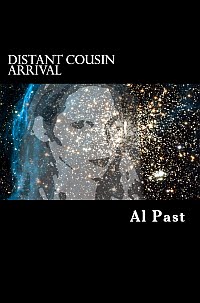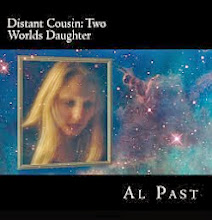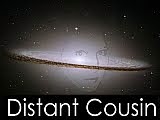 Ana’s native language is Luvit, which was an extinct branch of the Indo-European family of languages—until Ana returned to Earth, that is. The Indo-European language family is large. It includes most of the languages of Europe (Italian, French, Spanish, German, etc.) as well as several in other countries (Iran, Afghanistan, and India, for example). This has been discussed elsewhere on Ana’s blog.
Ana’s native language is Luvit, which was an extinct branch of the Indo-European family of languages—until Ana returned to Earth, that is. The Indo-European language family is large. It includes most of the languages of Europe (Italian, French, Spanish, German, etc.) as well as several in other countries (Iran, Afghanistan, and India, for example). This has been discussed elsewhere on Ana’s blog.The people of her planet have developed their own literature, art, music, science, and other fields of study, but they do not have all the “academic” fields that we do. One of these is anthropology, the study of man. That’s probably because their society does not have the fascinating and perplexing diversity that human cultures on Earth have, and that includes linguistics, the study of the languages of man.
Thomans all speak one language: Luvit. There are some differences in the language between Thoman groups living widely apart from others, but these amount to a matter of accents, and do not affect mutual intelligibility.
As a result, Ana has been intrigued by the languages of Earth, which show her totally new and intriguing ways of speaking and thinking. She has had some contact with languages from other language families (Chinese, Japanese, and Arabic, for example) but she’s never been able to learn to speak any of them.
She’s had better luck with learning other Indo-European languages. Her English is quite proficient, and she also speaks Spanish fluently. She’s not bad in several Slavic languages, which are also most closely related to her own Luvit: Czech and Polish, in particular. She can communicate with some difficulty in French and Hindi (also Indo-European).
But she’s totally at sea with Chinese, to name just one. That may be why she was so delighted to find a Chinese poem that’s a tongue twister even for the Chinese. Chinese is what linguists call a “tone” language. For example, the word “ma” has at least four meanings depending on the tone the speaker imparts to it. It can mean “horse,” or “mother,” or "hemp," or “pepper,” but to the Western ear, all four sound identical. Yet any Chinese speaker understands them as completely different words. (See the Chinese character for "ma" above.)
That’s the idea behind the poem she found online. All the words sound to us like “shi,” or “shee.”
Yet the poem begins (in translation) “In a stone den was a poet called Shi, who was a lion addict, who had decided to eat ten. He often went to the market to look for lions.” Ana played this link over and over, laughing in amazement.
Since most of us know as little Chinese as Ana, you might be similarly amazed to hear it recited. Keep in mind that the meaning of the words is conveyed by the tone. You will not hear the tones, but we promise you, a Chinese speaker will.
This is the recitation, and, for the truly curious, this is a discussion of the history of the poem.























No comments:
Post a Comment